An Aniplant Clinic
Steps toward a Better Life
The world is hardly rosy and the living is hardly easy for
the average Cuban today, but it's better than it used to be, and it's easy to
predict still better times ahead. That’s
a hopeful situation for the man on the street and for his dog, who lives on
leftovers from his master's table.
Since my first trip there in 2005 I have noticed a creeping
improvement in people's lives and in their future prospects. In 2005 there were lots of rigid rules that
restricted the lives of citizens. For
example, a Cuban citizen then could not stay at a first class hotel, although
there are many such hotels and they scramble to stay full of tourists from
Canada and Europe. You might say,
"Well, Cubans don't have the resources to spend on fancy hotels
anyway," and you'd be right for the most part, but the rules hurt
anyway. Those hotels, at least in part,
are government enterprises, supposedly owned by the people, but the people
couldn't stay in them.
Then a small door opened, and the rules were changed to to
allow citizens to stay in the hotels.
This probably only really affected a small percentage of people, but we
must crawl before we can walk. The
leaders were on to something, and rule relaxation wouldn't just stop with
hotels. Next, Cubans were told they
could have cell phones in a reversal of old strictures. Well, that was no baby step, and people could
soon be seen using them at bus stops, while walking on sidewalks, in parks—you
name the place and cell phones were there.
How did they pay for Cuba's high telephone charges? Well, phone prices and monthly fees were
subsidized by loving relatives living in other countries. Cubans began to save steps, trips, time, and
money using the convenience of a phone in your purse or pocket.
When I first visited, paladars (privately owned restaurants
improvised from a room in the owner's house) were already feeding tourists, but
the rules severely limited their size to 12 seats. Many paladars were built on the front porch
of city houses, but a hard working restaurateur could make much more than the
Cuban's average salary of $19.00 US a month.
Like restaurants everywhere, good ones are crowded and poor ones fail,
but with a 12 seat limit, Cuba wasn't going to develop any Wolfgang Pucks.
Then, in a wave of relaxation, the government let the
paladars expand by killing the 12 seat limit.
The last time I was there, we ate in such an expanded paladar. It had expanded into several rooms in the
basement area also using the original front porch seating. The place was pretty full, and there was a
buzz of conversation, background music, and clinking dishes and glasses that
suggested a thriving enterprise. It
doesn't take a Peter Drucker to know that if 12 seats can make money, 50 will
make lots more.
But the best was yet to come. A couple of years back, Cuba finally dumped
the myth that the government owned all the houses and cars. The old rule was that you could live in your
house or trade houses with someone else, but it wasn't yours to sell. If you left the country it would be taken
over by the state. More recently, in a
move that surprised many people, a new rule said you could sell the house you
lived in and your car (often old US cars from the 1950's), and the money was
yours to keep and use.
Wow! All of a sudden many people had a sense of well being
and optimism. In a very few months,
driving down the street you could see painters, carpenters, and cement masons
at work repairing and sprucing up the houses.
No longer was maintenance deferred because it was the government's
responsibility. Real value was being
added, sometimes by sweat equity, and more people were working. Today, demand for construction work has made
their pay better than ever, and the incipient slum look is beginning to
disappear from neighborhoods.
There is an old joke among the Cubans that the government
pretends to pay its workers (with devalued old Pesos), and the workers pretend
to work. Be that as it may, as workers
leave state payrolls and enter a range of permitted private businesses, there's
no pretending to work among the entrepreneurs
who are rekindling a growing and productive middle class.
And let's not forget Rover, the family dog, who eats what's
left from the dinner table. Lately he's
learned that a rising tide lifts all boats as the quality of his meals
improves.
Les Inglis













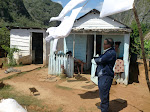




























































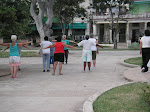
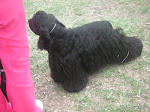
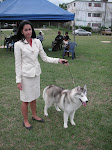


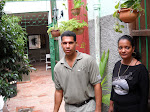





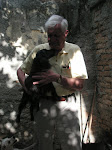



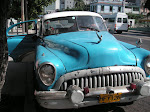

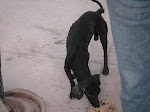



No comments:
Post a Comment